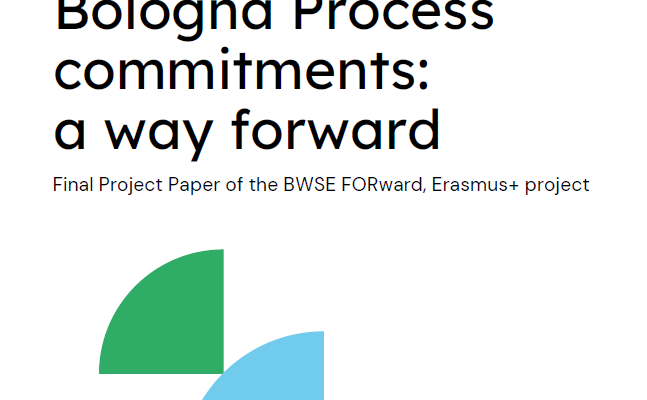
Bologna Process commitments: a way forward
The Bologna Process, and the Bologna Follow-up Group (BFUG), which oversees the process in between Ministerial Conferences, has brought about major improvements in higher education, notably in fields such as quality assurance, recognition, social dimension, learning and teaching, internationalisation and mobility. The same process defined, shaped and continues to shape the European Higher Education Area, which spreads across 49 countries. As one would foresee, such a big number of countries translates into a considerable diversity of higher education systems that aim to work together in various fields despite their differences.
It is important to acknowledge that the Bologna Process played a crucial role in making many of the higher education processes more coherent. Nevertheless, there are still challenges, and the aim of this paper is to be ambitious, look ahead, and propose recommendations that will ensure that the Bologna Process continues to respond to the needs of academic and administrative staff, students and other stakeholders. This paper considers the practical approaches employed by various stakeholders and the fact that excellence can be achieved when higher education institutions are diverse and reflect the diversity of society at large. It proposes recommendations to different crucial players of the higher education community that need to work hand in hand in order to achieve the desired outcomes: governments, higher education institutions, student representative bodies, quality assurance agencies and ENIC-NARIC centres.
Based on the results of the Bologna with students’ eyes (BWSE) publication and the outcomes of two Peer Learning Activities (PLAs), which took place as part of the Erasmus+ Project BWSE FORward, the following areas were identified as presenting challenges that hamper the advancements in the implementation of Bologna Process commitments implementation:
- student participation in internal quality assurance
- student-centred learning
- implementation of ECTS
- recognition of prior learning
- internationalisation and mobility
Therefore, this paper includes recommendations regarding these areas and others such as the social dimension, to mention just one, which is a constant undertone in all the proposed recommendations.
You can read and download the publication here.
